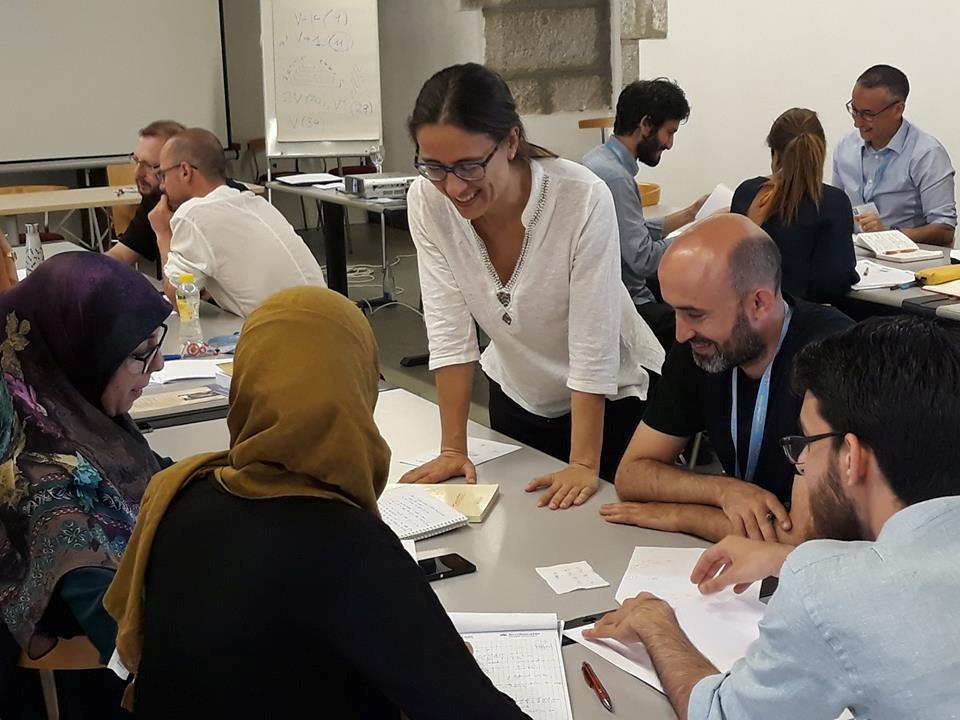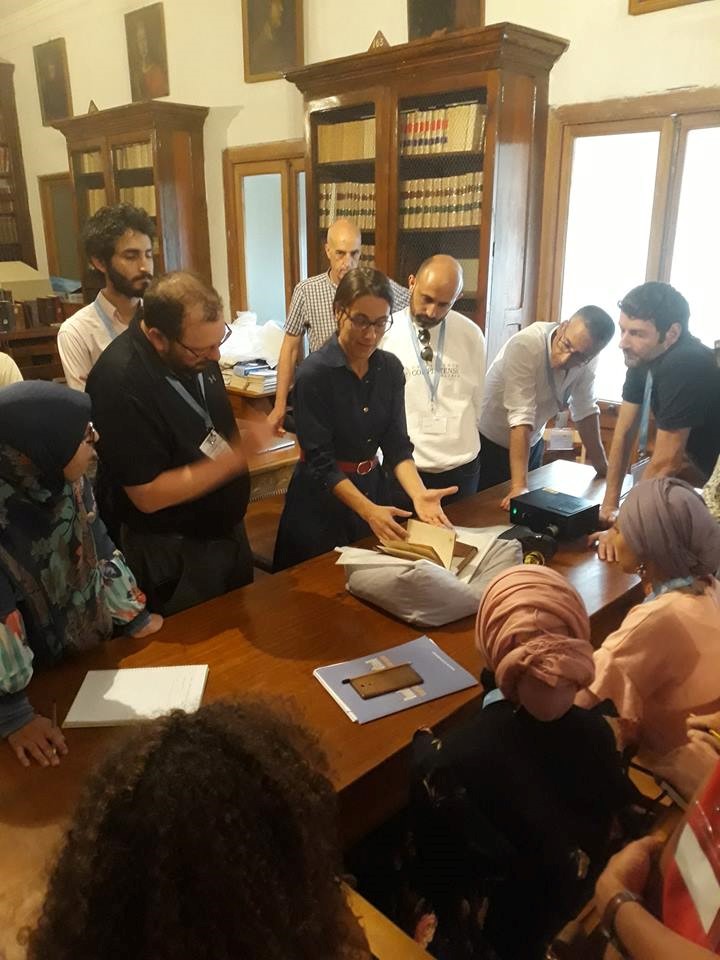Summer School in Arabic Codicology, at the Royal Library of the Monastery of San Lorenzo de El Escorial, July 9 – 13, Madrid
The fifth, consecutive, intensive summer school on Arabic Codicology: the Islamic Manuscript Heritage in the El Escorial Collection took place in Madrid, Spain from July 9 – 13. The course was led and directed by Professor Nuria de Castilla (Ecole Pratique d’Hautes Etudes, Paris), and Professor François Déroche (Collège de France, Paris). This year, participants were also able to benefit from the expertise of José Luis del Valle Merino, director of the Royal Library of the Monastery of San Lorenzo de El Escorial. The course was sponsored by the European Commission Research Project Saadian Intellectual and Cultural LifE SICLE 670628 and co-organised by UCM’s Fundación General.

Professor Nuria de Castilla and some of the participants at the summer school
The aim of the summer school has been to provide the students with basic training in codicology and the research methods they will need when studying and analyzing Arabic manuscripts. Following morning lectures on different aspects of codicology, such as composition, writing surfaces, illumination, paleography and bindings, the afternoons were dedicated to hands-on sessions at the Royal Library, where participants were able to apply the knowledge and skills they had learnt, by examining manuscripts from the Arabic Collection.
The El Escorial Arabic Manuscript Collection (circa 2000 codices) consists mainly of manuscripts from the Library of Sultan Mūlay Zaydān, which became part of the Library of Phillip III of Spain in 1612. The collection is thus one of the very few from the Muslim world to remain virtually intact and is therefore considered to be the most important collection of Arabic manuscripts in Spain and one of the most interesting in Europe.

A hands-on session in the Library
The course not only furthered participants’ knowledge of the collection, but also promoted the creation of international networks and exchange between participants. With an average of 100 applications each year, but capacity for only 16 participants, to date, the course has welcomed participants from all five continents. This year, the course was attended by participants from Argentina, Austria, France, Germany, Iran, Israel, Lebanon, Morocco, Singapore, Spain, Tunisia, the United Kingdom and the United States.
Anyone interested in the field of codicology can find more information on the summer school’s Facebook page, Twitter profile or website.
© International Qur’anic Studies Association, 2018. All rights reserved.
